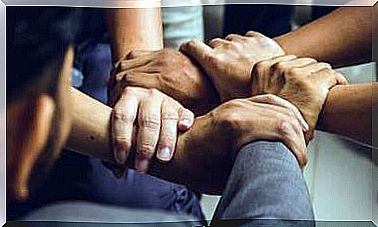Counterfactual Thinking: What If Things Had Been Different?

What if I had decided to study abroad? And what if I had not broken up with my boyfriend? What would have happened if I had accepted that offer? One of the mental tasks people spend the most time on is imagining alternative timelines. Through counterfactual thinking, we try to imagine what reality would be like if we had made other decisions.
Sometimes doing this exercise can be beneficial. Still, preoccupying yourself with mentally exploring alternative choices can have negative consequences. Frustration, bitterness or anxiety can become a part of your life if you are not careful. Thus, you must learn to accept your reality and live in the present.

What is counterfactual thinking?
Throughout life, you make certain choices. Some are mundane, while others are more critical. With every decision you make, you close some doors and open others. Yet it is almost impossible for people to avoid at some point thinking about how things could have been. What if you chose another path? This is exactly what counterfactual thinking refers to. It is about projecting alternative realities that may have arisen from different decisions.
Through it, you can immerse yourself in the past and create a variety of scenarios. You can then compare these scenarios with your current situation. It is also possible for you to use this type of reasoning in future situations. For example, you could say, “If I quit this job, I probably would not find a better job. I can even end up unemployed ”.
The possibilities are endless. At the root of this process is the belief that your minor decisions have shaped your life. This statement is partly true, since your current situation is the result of all your past actions. Also, your current decisions will actually affect your future. Yet a single decision does not constitute a judgment. You have the opportunity at any time to change the direction of your life.
The benefits of counterfactual thinking
This cognitive process has some benefits as long as you use it in moderation. First, it helps you learn from the mistakes of the past. This increases your ability to make better decisions. When you are faced with a dilemma you have already faced before, you have the experience of predicting certain events. Therefore, experience can be a starting point for better decisions.
Think of this example. Suppose you failed an exam earlier because you did not study enough. You certainly had thoughts like, “If I had studied more, I would have passed the test.” Through this type of thinking, you will behave differently in similar circumstances in the future.
On the other hand, it can also help you feel better about your performance. For example, “If I had not moved to the city, I would never have met my best friend.” In addition, it helps you get some respite from negative situations. For example, “If I had not been wearing a seat belt, the accident could have been much worse.”

Focus on the present
Still, if you lose sight of the use of counterfactual thinking, you may find yourself immersed in it. This is especially true if you use it constantly. You may start to feel negative emotions due to some of the previous decisions. It can be guilt, remorse and frustration. For example, “If I had paid more attention, our friendship would not have ended.” Alternatively, “If I had not married so young, I would have been able to enjoy life more”.
You need to keep in mind that counterfactual thinking can serve as a roadmap for your future. However, it should never be an anchor for your past. If you feel that you did not act correctly in certain life situations, try to correct your mistake. You can consider it a learning experience for future situations. Somehow you can consider it as a starting point for building the future you want. Avoid considering it an emotional strain.
In the same way, constantly thinking about the future can cause anxiety. It can also give you stress and even a crippling indecision. The truth is that you can not predict the future.
The past no longer exists and the future is a mystery. Focus on accepting your gift, learning the lessons and giving the best of yourself. Only then will you be able to forge the future you want. Remember that mistakes are a part of life. Do not forget that you are paving your own path. Finally, remember that you will always have new opportunities.









